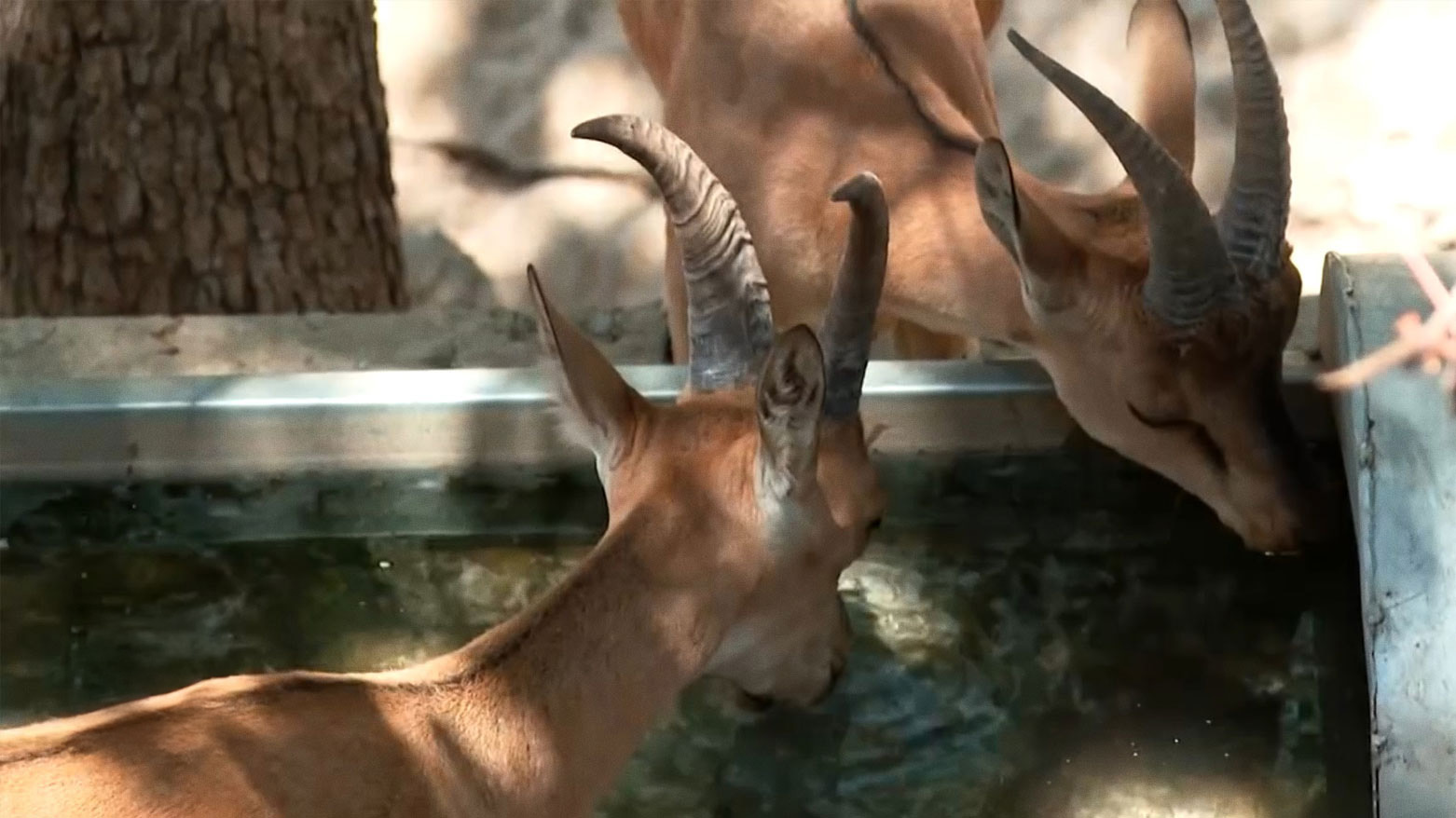Barzan Area: A Century of Environmental Protection, Wildlife Conservation
For more than a hundred years, the region has been a sanctuary for wild animals and birds, safeguarded not just by laws but by deeply ingrained cultural and ethical values.

ERBIL (Kurdistan24) – Nestled in the heart of the Kurdistan Region, the Barzan region stands as a rare and remarkable example of environmental conservation, where a century-old tradition has ensured the protection of nature, wildlife, and biodiversity. Unlike many parts of the world struggling with deforestation and poaching, Barzan has preserved its ecosystem through strict prohibitions on tree cutting, hunting, and other activities that threaten the natural balance.
For more than a hundred years, the region has been a sanctuary for wild animals and birds, safeguarded not just by laws but by deeply ingrained cultural and ethical values.
The people of Barzan have become environmental guardians, upholding a legacy that dates back to the early 20th century under the leadership of Sheikh Abdul Salam Barzani and Sheikh Ahmad Barzani, who declared the environment and its creatures sacred and worthy of protection.
Enforcing Environmental Laws with Community Support
The protection of wildlife in Barzan is not a passive endeavor; it is actively enforced by the Barzan Environmental Protection Force. Hassan Khali, the commander of this force, affirmed that violators who attempt to hunt in the area face immediate consequences.
“Those hunters who had caught several partridges were punished. For every partridge we take from hunters, we return it to nature. Unfortunately, the hunters had cut the wings of the partridges, so we’re monitoring them until their feathers grow back, then we’ll release them back into nature,” Khali stated.
This proactive approach to conservation extends beyond law enforcement. The region's residents, most of whom have grown up with an ingrained respect for nature, play a crucial role in ensuring that animals and birds are not harmed.
Many see environmental protection not as an obligation but as a moral duty.
A Cultural Legacy of Conservation
The commitment to environmental protection in Barzan is more than just a legal framework; it is a cultural practice that has been passed down through generations. Hersh Rashidi, an environmentalist in the region, highlights this unique aspect of Barzan’s conservation efforts.
“During the time of Sheikh Abdul Salam Barzani and Sheikh Ahmad Barzani, a decision was made that the environment, birds, and wild animals must be protected. Since then until now, protecting the environment and wild animals and birds has become a cultural practice in the region,” Rashidi explains.
This deep-rooted environmental ethos has led to an extraordinary coexistence between humans and wildlife. Unlike in many other regions where animals fear human presence, in Barzan, they roam freely, knowing they are safe.
Protecting Wildlife as a National and Humanitarian Duty
For the people of Barzan, environmental conservation is not simply a regional effort but a broader national and humanitarian duty. Muhammad Amin Ahmadi, another environmentalist, emphasizes the importance of continued awareness and education in maintaining this long-standing tradition.
“Protecting the environment is a national and humanitarian duty. This goes back to the system that was established in the region earlier. The people of the region have been made aware of the importance of protecting their environment,” Ahmadi said.
He further explains that this responsibility is not seen as a burden but as a collective duty embraced by the community. “Now we don’t see this as a burden or pressure on us. Everyone should know that it’s a humanitarian duty to protect this environment.”
Rescue and Rehabilitation Efforts
The people of Barzan do not only protect wildlife from hunters but also actively intervene when animals are in distress. In cases where wild animals require emergency assistance, locals inform the environmental protection guards, who then monitor and provide the necessary healthcare treatments.
This hands-on approach reflects the deep commitment of Barzan’s residents to ensuring that the region remains a haven for wildlife. Their efforts have turned Barzan into a model for conservation in the Kurdistan Region, Iraq, and even neighboring countries.
A Model for Environmental Conservation
As the world grapples with the devastating effects of deforestation, climate change, and species extinction, Barzan’s century-long commitment to environmental preservation stands as an inspiring example.
The region has successfully demonstrated that conservation can become a way of life when deeply embedded in cultural values and local governance.
Barzan’s experience offers invaluable lessons for policymakers, conservationists, and environmental activists across Iraq and beyond. It proves that when a community unites around a shared commitment to nature, it is possible to create an ecosystem where both humans and wildlife thrive in harmony.
